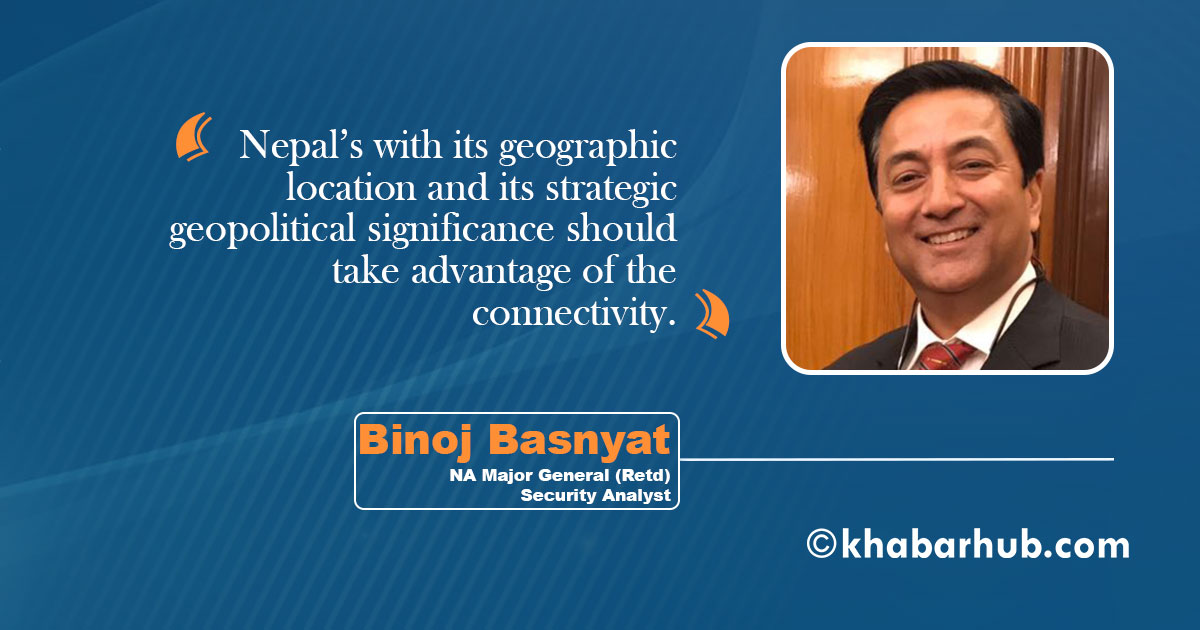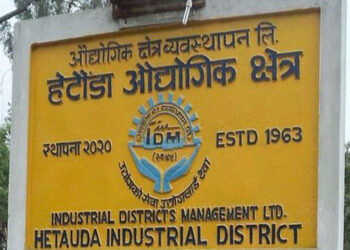The eight-member, four observers and 6 dialogue partners including Nepal with four guests attendances; the Shanghai Co-operation Organization (SCO) summit is being held on June 13th and 14th in Bishkek, Kyrgyzstan. The permanent secretariat of SCO is seated in Beijing and a security outpost in Tashkent. The guests to attend the SCO include the Association of South East Asian Nations (ASEAN), Commonwealth and the Independent States (CIS), the United Nations and Turkmenistan.
SCO began its journey as Shanghai Five in 1996, later christened into Shanghai six in 2001 and finally converting it into SCO in 15th June 2001. The charter of SCO was signed in June 2002 which entered into force in September 2003. Though it started as a Eurasian political, economic and security alliances, the organization has given a different geo-political semblance after India and Pakistan became its members in 2017 making it a trans-regional forum.
This multilateral international organization offers an opportunity for maintaining peace, posting prosperity, and solving conflicts amongst the member partners and in the region. It is more visible now and acquires more relevance especially when the Trump administration declared China and Russia as strategic competitors of the United States. The SCO encourages strategic partnership with nations located in the vicinity in and around Asia.
The policies of SCO are directed to achieve the above-stated goals. The SCO in due course of time is going to be more perceptible than what it is now particularly in the context of the ongoing trade war between China and the United States. United States terminating India’s designation as a beneficiary developing nation under GSP from 5th June is another issue which will find its due place in the upcoming Shanghai co-operation summit. Globalization and multilateral treaties and conventions are increasingly becoming less significant and regional forum like Shanghai co-operation is asserting its presence and worth both. The US is putting into practice the Indo-Pacific strategic policy and China is going ahead with the Belt and Road Initiative (BRI). Shanghai co-operation will review the global scope and strategic outcome of both the projects mentioned above. Modern Chinese economic competence in land and sea is in full swing. Five of the eight South Asian nations are already involved with the SCO.
Nepal is looking for more investment from China. The President of Nepal attending the 2nd BRI meeting stressed on the importance of BRI project in wake of Nepal-China relationship. China is aspiring to play a more assertive role in Nepal and in other countries across the world by increasing connectivity and inviting more countries as trade patterns.
The organization represents 40% of the world’s population and almost 20% of the GDP with its larger geographic and demographic access covering three-fifths of the Eurasian continent and nearly half of the human population and is also regarded as the “strategic alliance of the East”. It is also posed as the eastern counterweight to NATO. The smaller nations in the Central Asians Nations (CAN) in the mid-nineties had a political aim of protecting their own sovereignty and integrity. Russia and China never treated NATO as a threat while the US always considered an alliance between China and Russian as a potential threat.
The CAN undertakes joint drills, training, and information every two years along with a peace mission, counterterrorism exercise and coordination for combating any eventual joint counter-terror operations. India and Pakistan a traditional enemy, both nuclear powers, were involved in its biggest joint military drill in Russia last year named as Peace Mission 2018 with about 7000 troops mostly from China to encourage mutual trust, cooperation and coordination against terrorist threats and to preserve regional peace and stability.
Russia seeks to strengthen ties with China in the wake of its deteriorating relations with Europe and the US. India and Pakistan joined to expand collaboration with the broader Eurasian region. It is to note here that Pakistan was not invited in the swearing-in ceremony of the newly elected Prime Minister Narendra Modi. New Delhi invited BIMSTEC leaders at the place of SAARC. Uzbekistan refrained from joining the military drills.
The Defense Ministers on 29 April and the Foreign ministers on May 11 and 12th of the SCO have already held meetings on bilateral and regional issues. They discussed to find ways to increase cooperation in combating terror amongst other issues. After the 2nd BRI forum held in China in last week of April, the upcoming summit will deliberate on noteworthy political dialogues to reinforce regional security, intensify economic activities including trade and support cultural and humanitarian cooperation.
The geopolitical and strategic interests of the participating nations will get their expression on this forum in order to develop a proper perspective to deal with emerging international problems. Consensus will be built on several vexed global and regional issues such as the rising global threat of international terrorism, transnational crimes, conflicts and development related matters.
The landlocked CAN and Southern Western Eurasia will get a channel to the deep water through the port of Gwadar, Baluchistan to trade with the rest of the world. Gaining geographical advantages through connectivity, trade, economic integration, and mutual security are not prohibited for member countries. The decisions reached this forum will have the sanction of both China and Russia — two permanent members of the UN Security Council. Being major military powers and intra-regional economic players, both Russia and China are most likely to shape the future course of the world.
India is an active member of the SCO and a gateway to the resourceful CAN and a potential market for superpowers and emerging economies. Terrorism remains one of the most important challenges to India and the South Asian nations with incidents having in Palwana, Colombo, and Kathmandu in the last three months.
“The security and defense domain could be grave,” said Ajit Doval the re-appointed National Security Advisor of India who stressed on the need to enhance the capabilities and professionalism of security forces for a future challenge. India’s Foreign Minister considers SCO’s Regional Anti-Terrorist Structure (RATS) as an effective counter-terror cooperation tool in the region. Connectivity continues to be an important issue for India.
India has been emphasizing at the SCO that establishing connectivity with South Asian nations with the help of North-South Transport Corridor from Mumbai to Moscow, from Chabahar Port that connects Afghanistan and beyond will bring prosperity. The Ashgabat Agreement for Central Asia connectivity, the India Afghanistan air corridor and the India-Myanmar-Thailand Trilateral Highway in the east are few more examples of connectivity in South and East Asia.
Peaceful, united, secure, stable, inclusive and economically vibrant Afghanistan is in the interest of all. The US’s intentions to withdraw from Afghanistan will leave security vacuum which will attract both Russia and China to actively involved in the region for their regional dominance as well as gaining prosperity. This will equally contribute to peace in South Asia.
Nepal and SCO
Nepal’s with its geographic location and its strategic geopolitical significance should take advantage of the connectivity to both the west and the east by being active in regional groups in SAARC, SCO, and BIMSTEC. Nepal should approach as the process takes two or more years in political and security fronts, to seek a membership or observer status in SCO so that our country can participate in the multi-national military exercise and security forums. In this way, Nepal will get a strategic advantage of connectivity and security which will uplift our economy. Nepal must remain and be part of addressing global threats such as cross-border drug crimes, cyber warfare, international terrorism, transnational crimes, and conflicts.
Views expressed in this article are the author’s own and do not necessarily reflect the stance of Khabarhub.









Comment